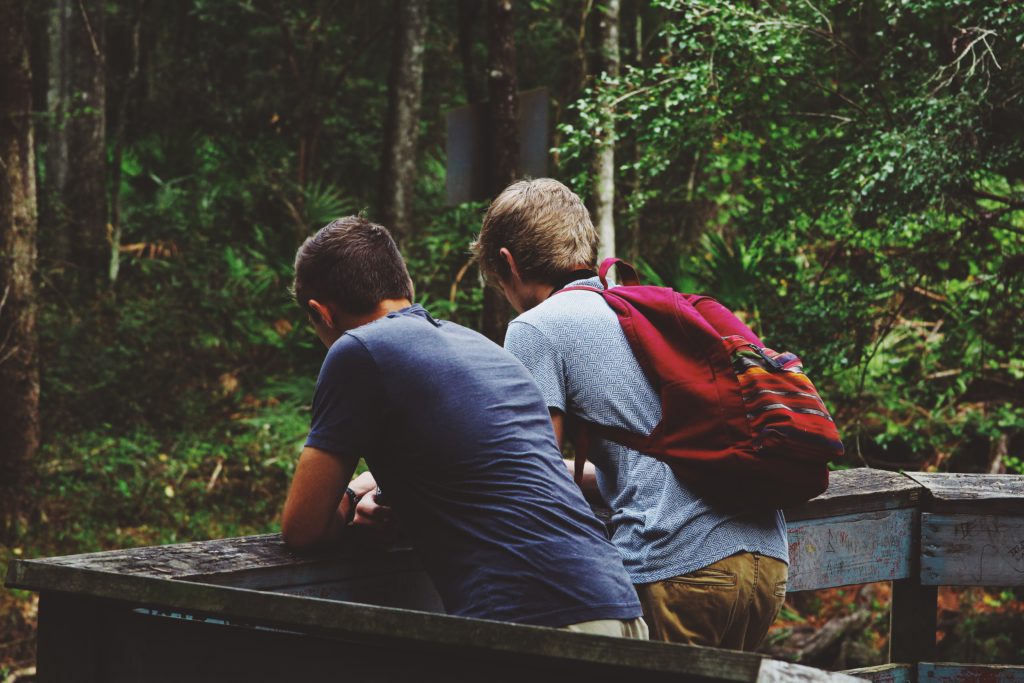It can be challenging for young people to stay connected during lockdown. Many teachers, parents and students in New South Wales prepare for home learning this week, but lockdown restrictions impact more than academic learning for students.
Friendships are particularly important for young people. According to a survey conducted by Mission Australia last year, more than 8 out of 10 young people rate friendships as their most valued item in life. Friends are also the people they are most likely to turn to for advice.
Here are some ways to help young people stay connected during lockdown.
1. Nurture relationships in your home
There are restrictions on socialising with people who you don’t live with, but there are no restrictions on socialising with the people you do live with. Lockdown is a good opportunity to better connect with the people you live with. And while friends are the preferred source of advice for young people, 72 per cent of young people also say they would go to a parent or guardian for help with important issues in their life.
Raising Children points to some of the benefits of having positive family relationships, such as helping children feel secure and loved, which gives them confidence to explore the world. There are many ways to build quality relationships, including using positive communication. Consider using your increased time together to have meaningful interactions. Enjoy family meals around the table, play games together, share stories, have conversations, go on family excursions to the park.
2. Participate in physical activity and use it as an opportunity to stay connected during lockdown
Exercise is good for your body, but also a great way to connect with a friend during lockdown. Exercise and outdoor recreation is considered a reasonable excuse to leave home under the stay-at-home restrictions. The rules are different in each state, and may change. However, at the time of writing, the rules in New South Wales allow you to exercise outdoors with one other person. The Department of Health says you can meet up with a friend, family member or trainer to walk, jog, ride a bike or scooter, or kick a ball at the oval.
There are many opportunities to exercise throughout the day. Older students could head to the oval with a footy or meet for a scooter ride in the skate park. Parents could take younger kids to the park to kick a soccer ball or cycle around the footpaths.
Exercise will also give you a boost of feel-good hormones, and reduce feelings of stress.
Just make sure you keep 1.5 metres apart and wash your hands.
3. Connect via virtual spaces
Most young people are way ahead of adults with technology that keeps us connected. As parents and teachers, we have an important role in ensuring our kids are using technology in a positive way that is contributing to their mental wellness, and not working against it.
Parents and teachers can help facilitate opportunities for young people to stay connected during lockdown, such as setting up zoom calls for face-to-face meetings, or sharing content, such as recording and uploading ‘news’ for small kids on Google classroom. Some schools are using content sharing in creative ways to maintain a sense of school community, such as running student video competitions on P&C Facebook groups.
Lockdown may be a good opportunity to remind teenagers about how to use technology in a responsible way. Parents should also set rules around technology use, including what content their kids are allowed to access and how long they’re allowed to use their screens for recreation.
ReachOut has a lot of great resources and advice for supporting teenagers with technology use.
Young people can also use technology to connect to other people who might be isolated and feeling lonely, such as grandparents.
4. Start planning for social events for when restrictions end
Planning a social event, like a party, can be energising. Research shows that being future orientated, by making plans, is an effective way to cope with stress. It might help young people feel connected by planning some of the events and activities they want to participate in once restrictions ease. Making a plan also gives a sense of control in a time that feels unpredictable.
One event you can start planning for is your school’s Walk-And-Talk-A-Thon. This is an annual event held in Mental Health Month in October. The goal is to build connections across your school community and help students develop their social skills. Find out more about how to participate in the Walk-And-Talk-A-Thon here.
*
Covid-19 continues to throw challenges our way. There are many things outside our control, including rules, restrictions and the virus itself. But there are many things within our control that will give us a sense of calm and order. Staying connected means adapting to our new world order, being socially isolated while not feeling socially isolated. Help look after the mental health of you and the young people in your care by doing what you can to stay connected.




